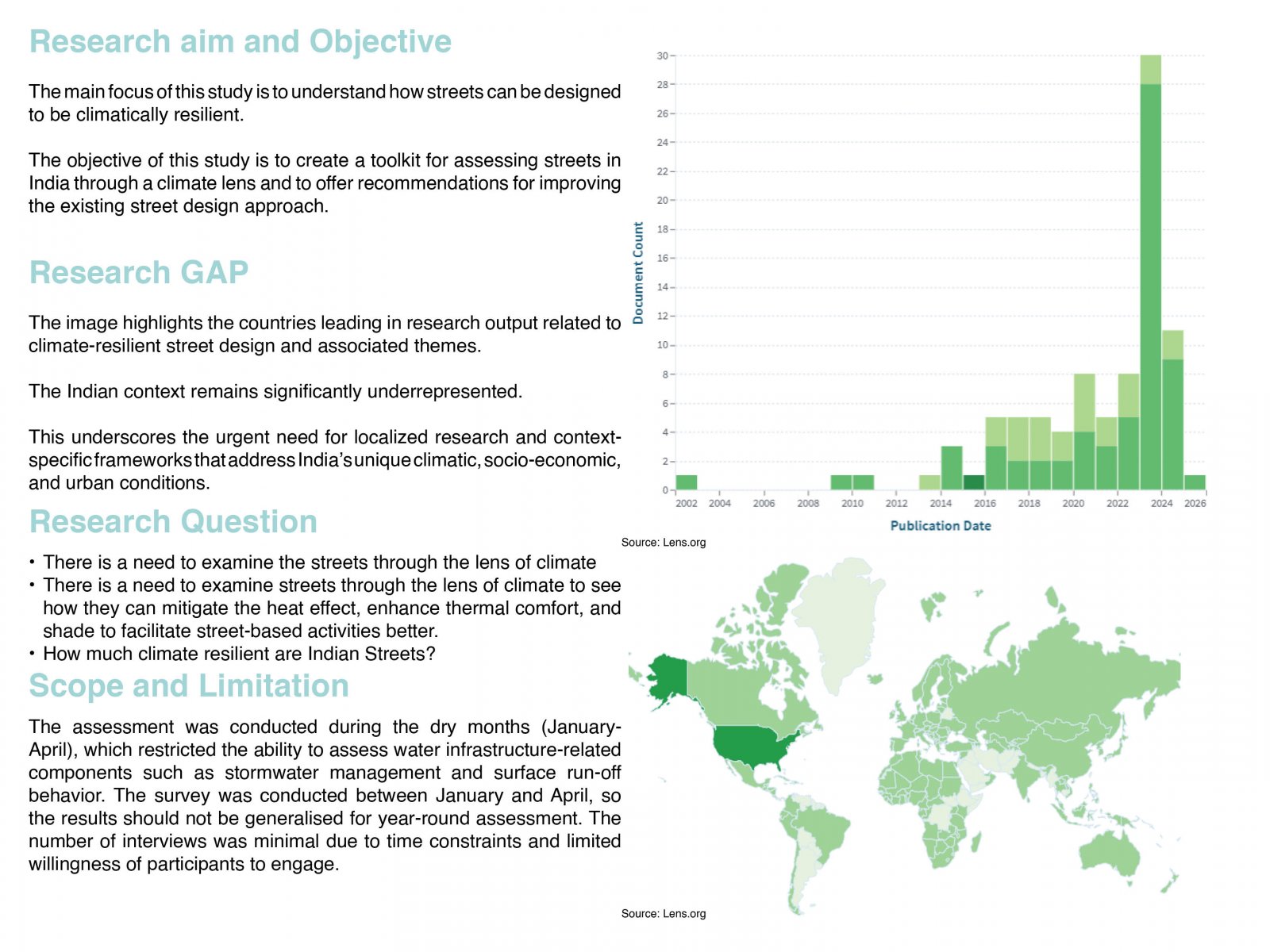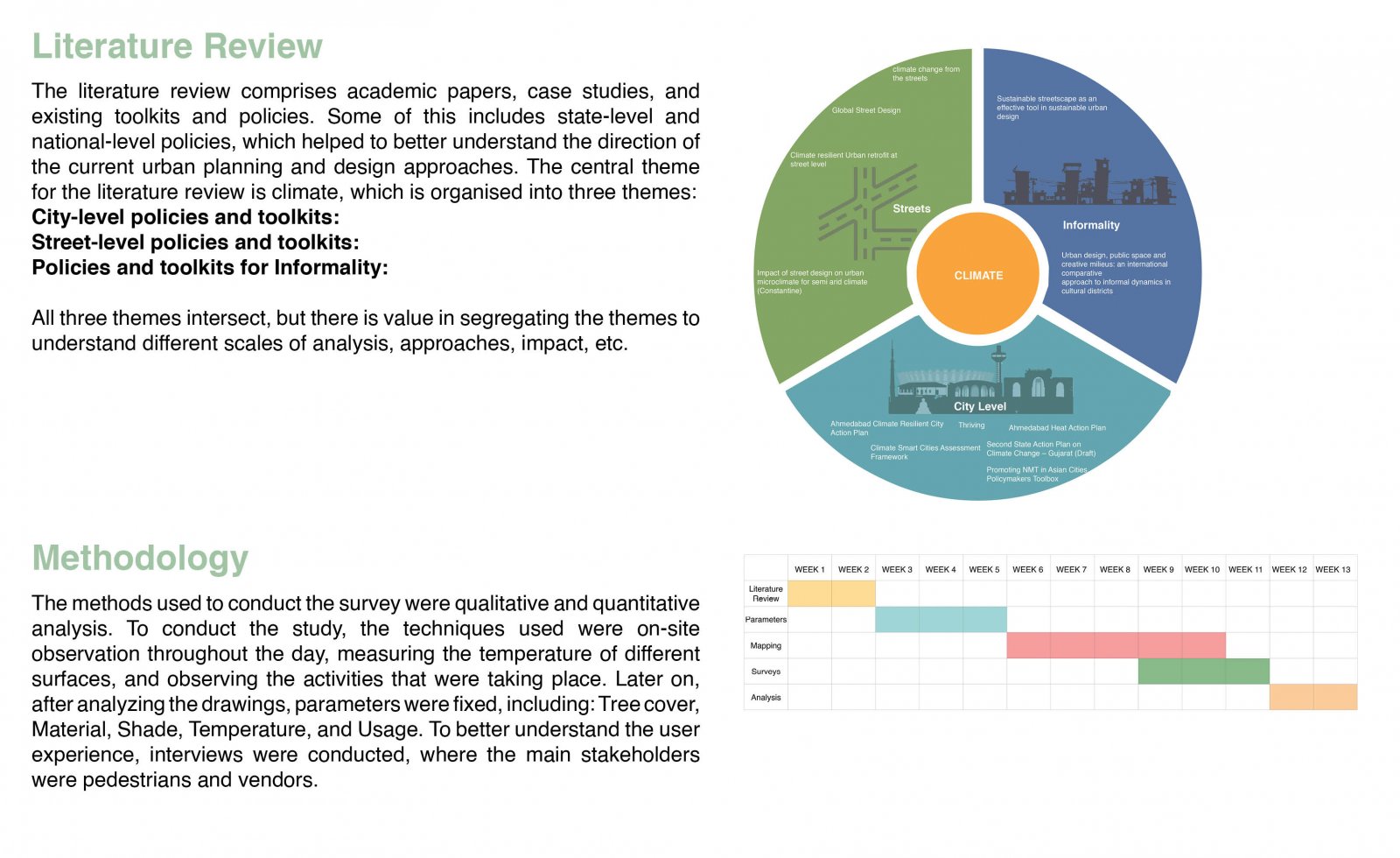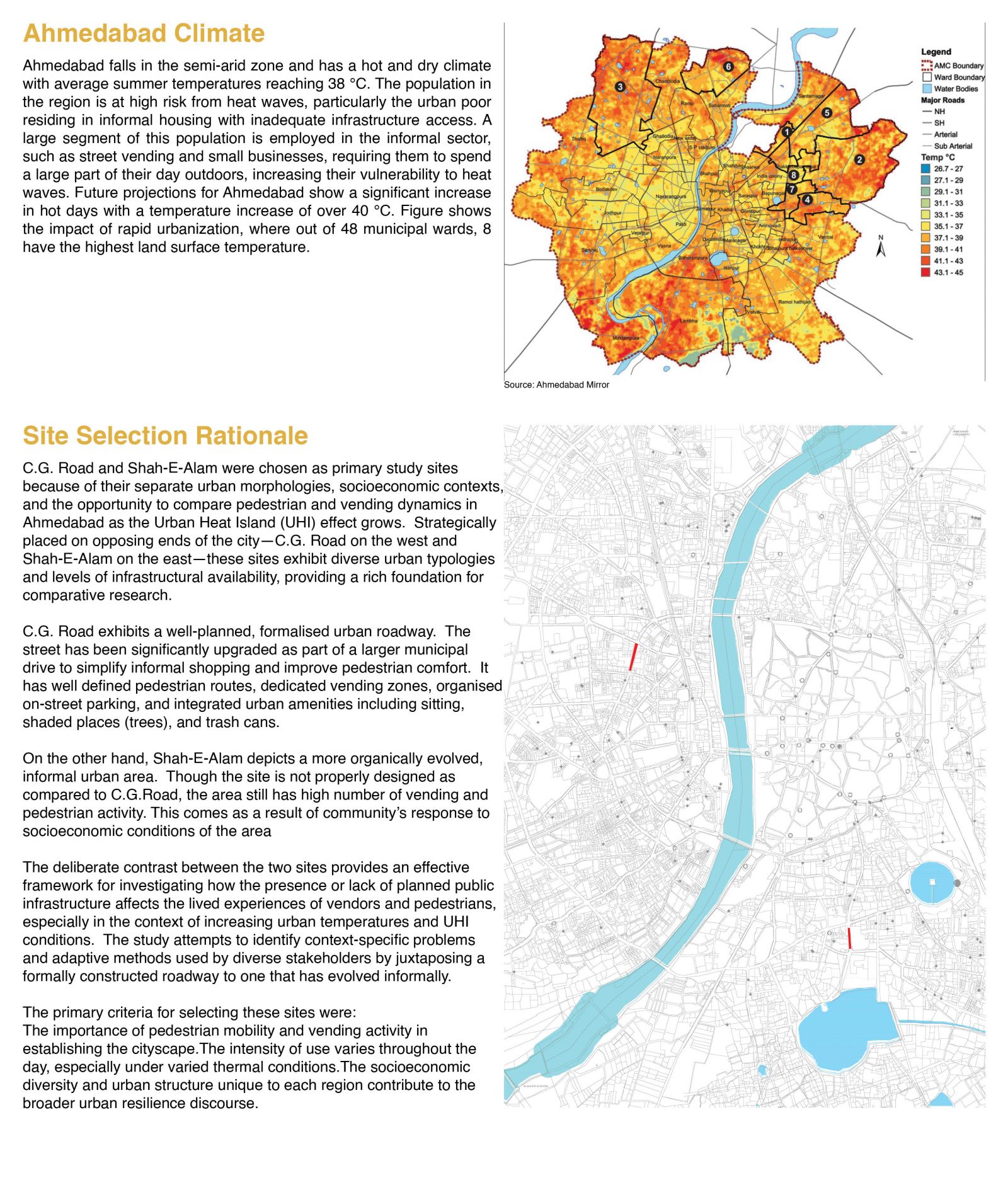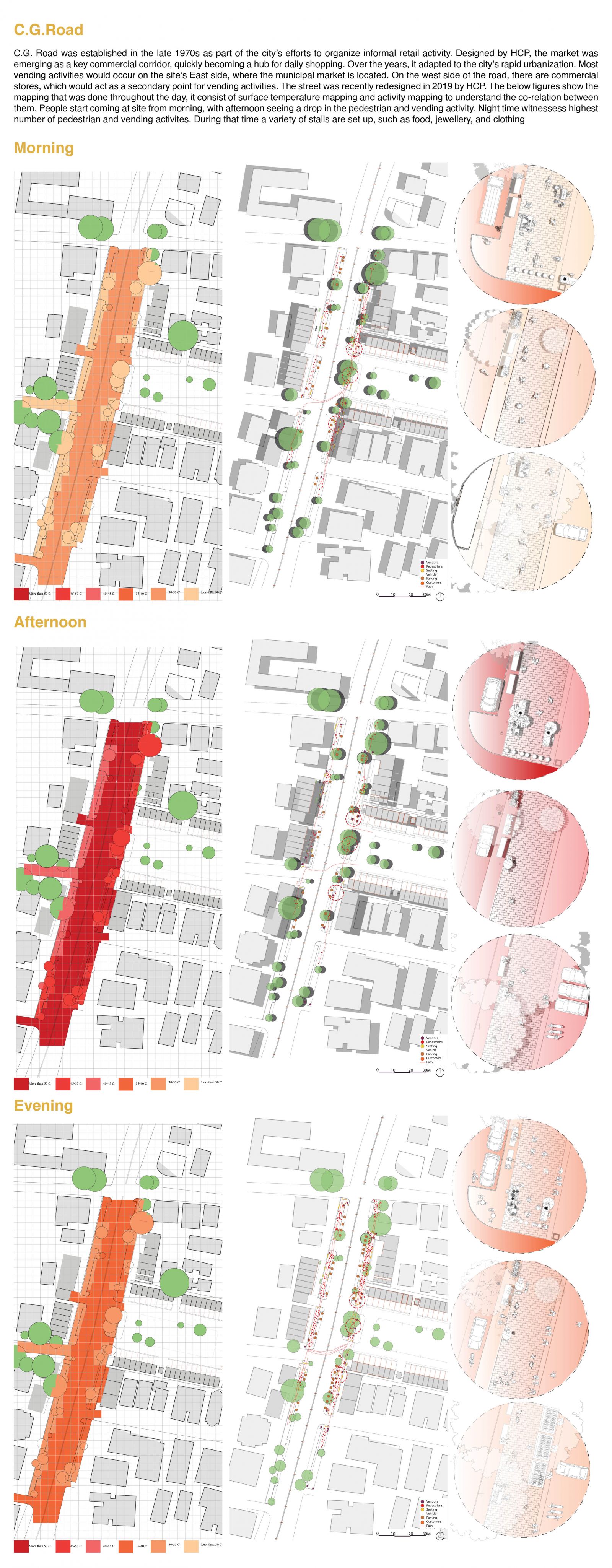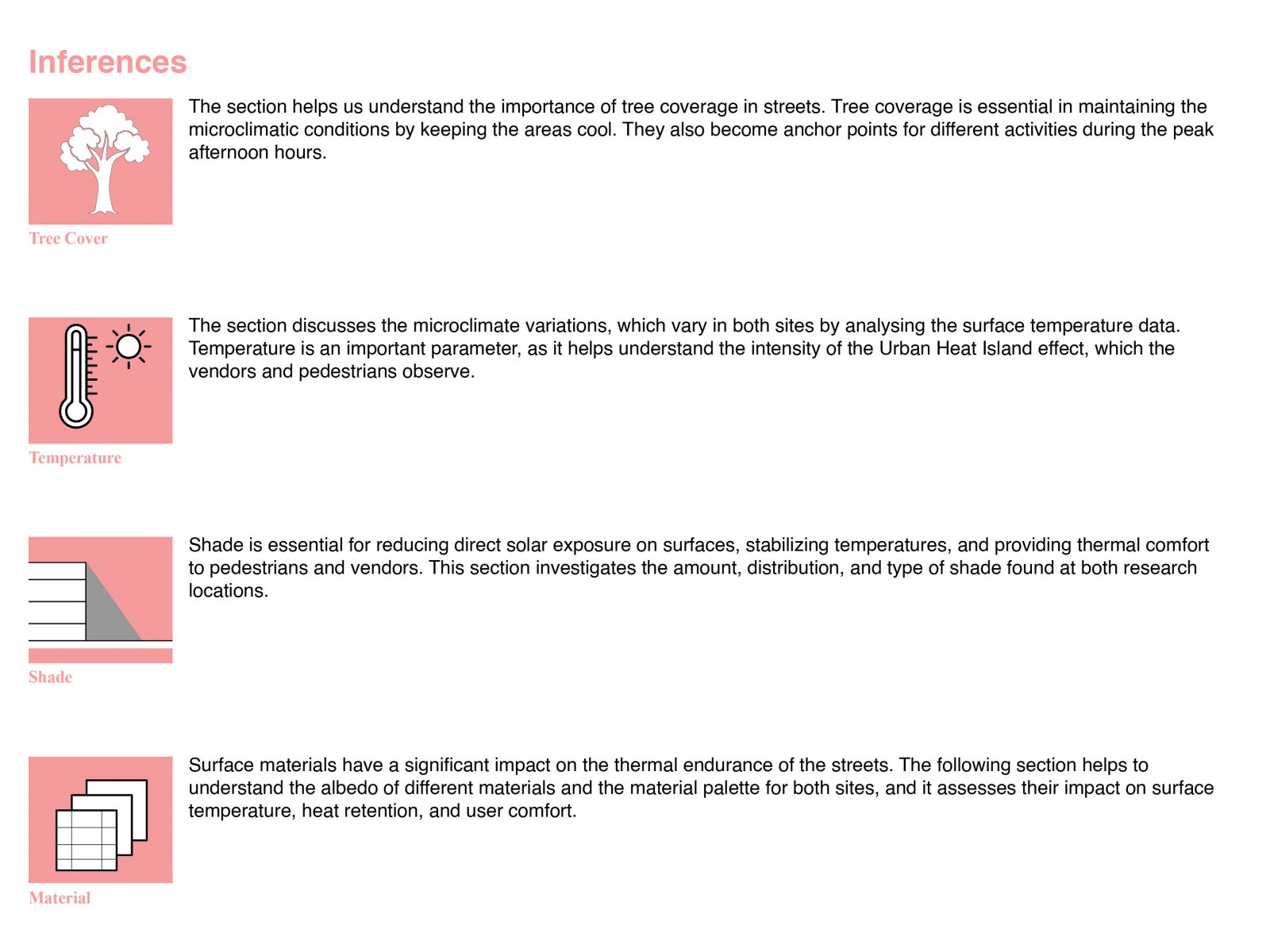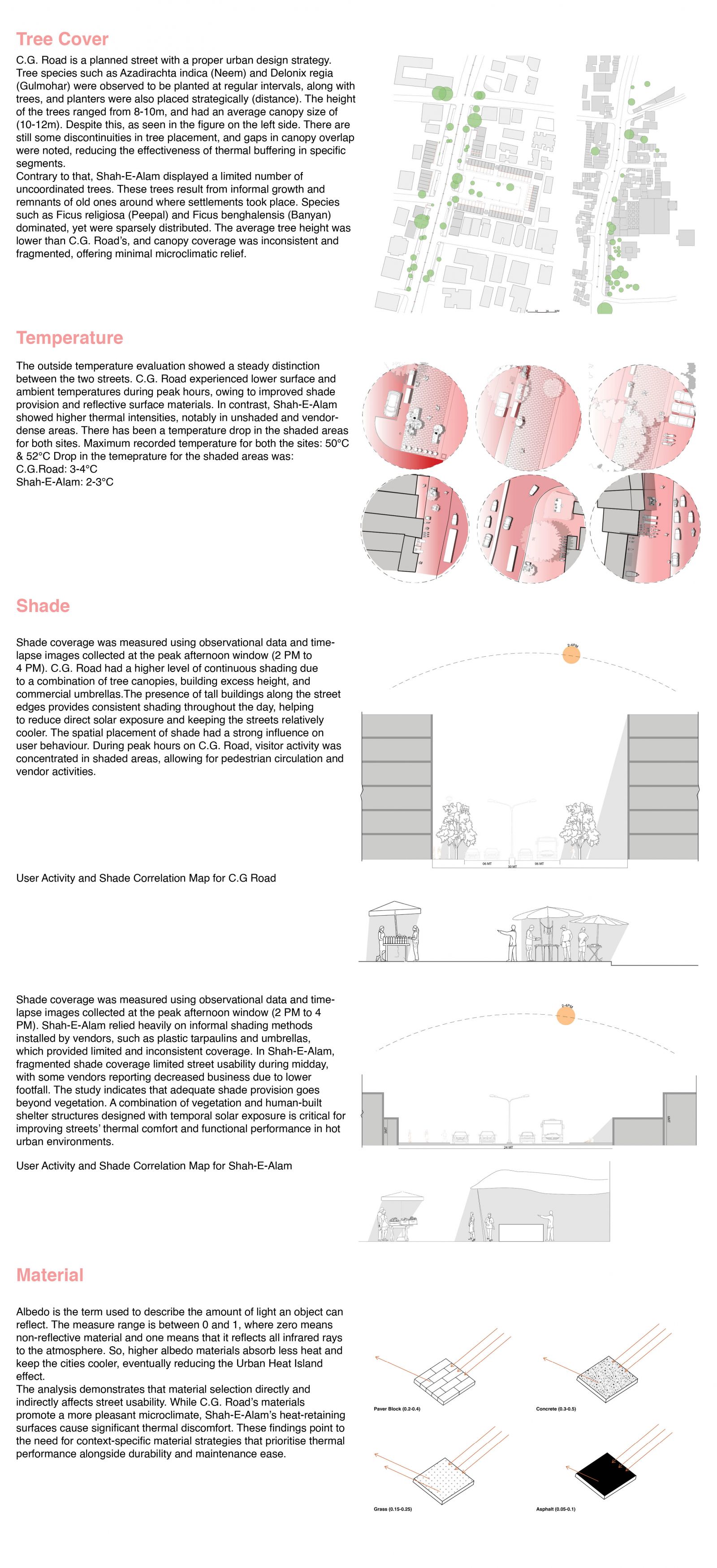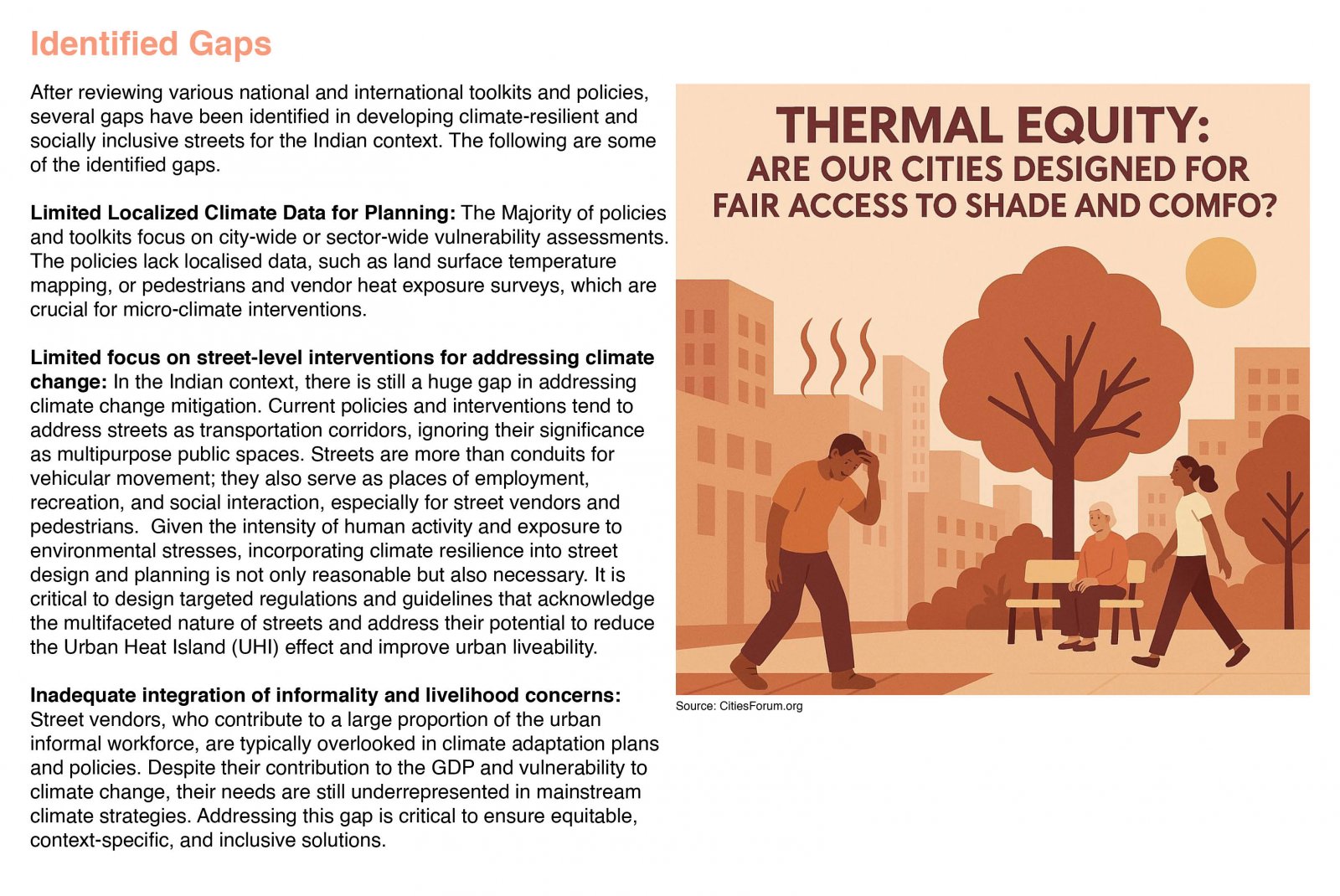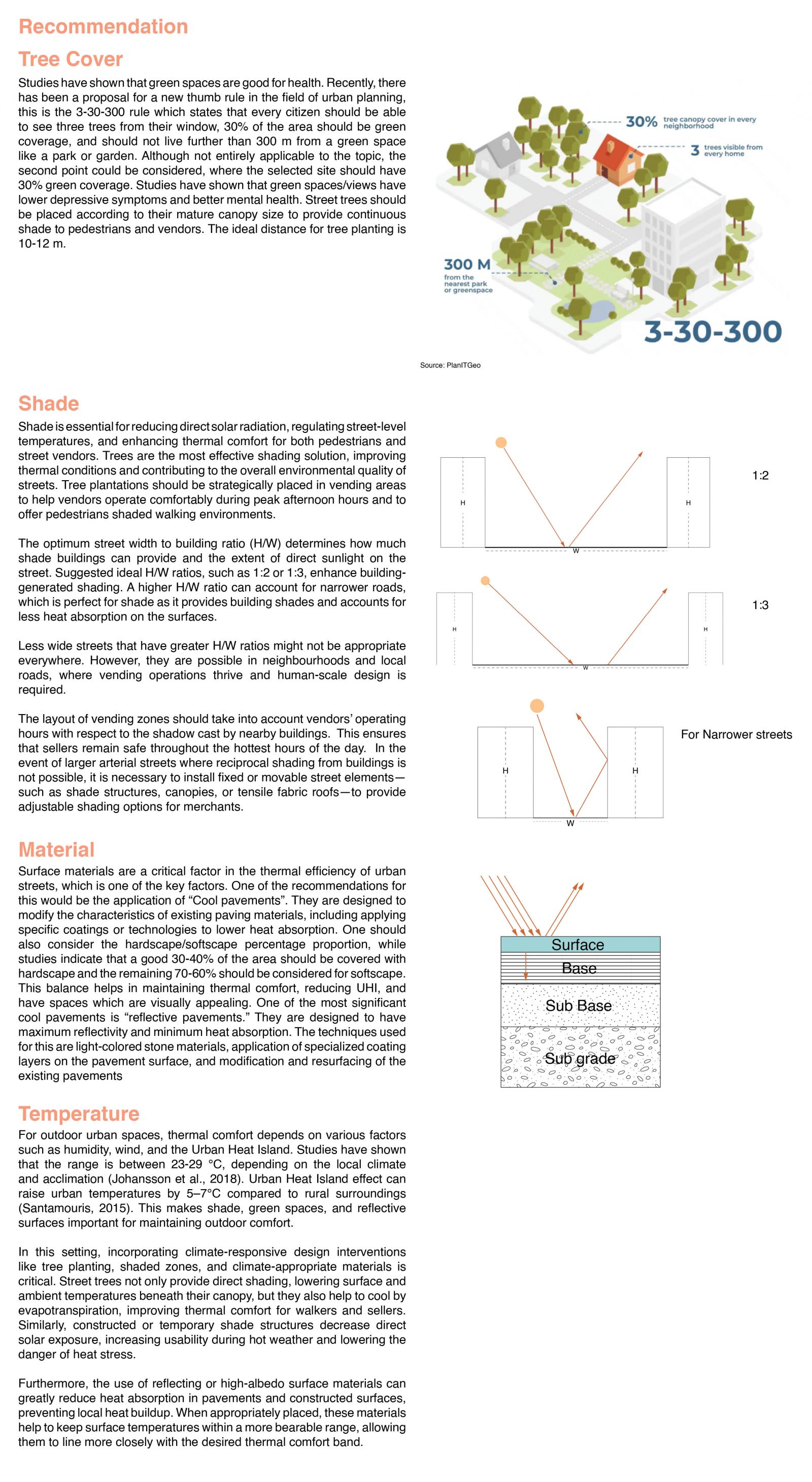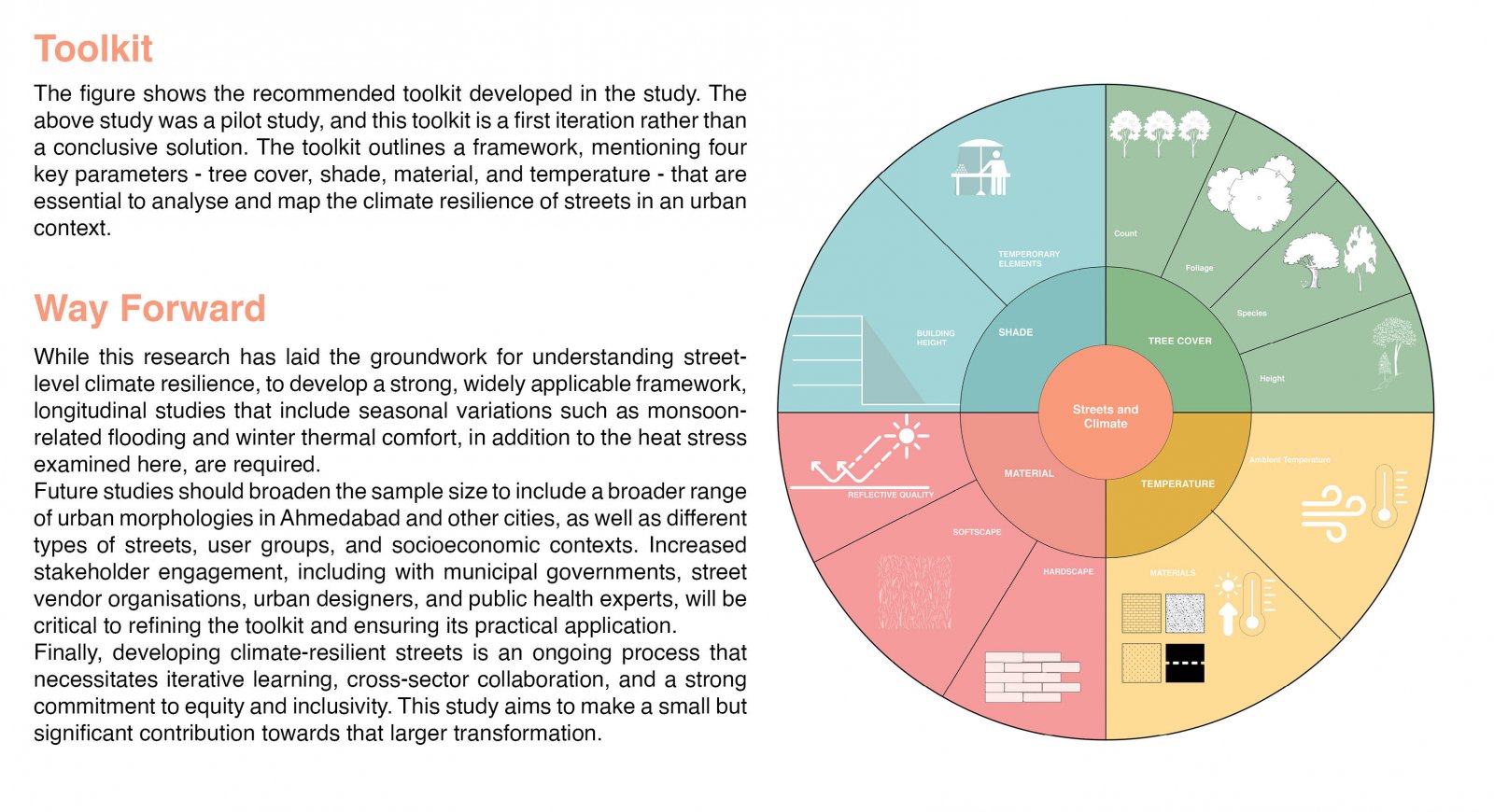Your browser is out-of-date!
For a richer surfing experience on our website, please update your browser. Update my browser now!
For a richer surfing experience on our website, please update your browser. Update my browser now!
India’s urban landscape is transitioning towards people-centered streets and public spaces, indicating a significant change in urban design. Although streets are increasingly acknowledged as ‘recreational spaces,’ their function as vital ‘workplaces’ for millions in the informal sector is often neglected. As cities deal with escalating climate challenges, their streets lack climate resilience, increasing the vulnerabilities of the informal street vendors who sustain their livelihoods on the streets. There is a need to examine streets through the lens of climate to see how they can mitigate the heat effect, enhance thermal comfort, and provide shade to facilitate street-based activities better. No existing toolkits or frameworks are available in the Indian context to evaluate streets from a climate perspective. The central research question of this study is to understand how streets can be designed as climate-resilient spaces. This study aims to create a toolkit for assessing streets in India through a climate lens and to offer recommendations for improving the existing street design approach. The study will examine existing policies, academic papers, and toolkits relevant to the Indian context, as well as global best practices. The Government of Gujarat in July 2023 announced a Climate Action Plan for Ahmedabad. Therefore, the study will develop and test the toolkit through two selected case studies in Ahmedabad (C.G Road near the municipal market, and Shah-E-Alam Road). The study will also collect first-hand data, photos, videos, and delayering the data to identify key parameters that shape the climate resilience of a street, particularly in the Indian context. This data will serve as a basis for developing a user-centered toolkit and provide design and policy recommendations.
View Additional Work